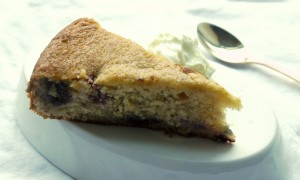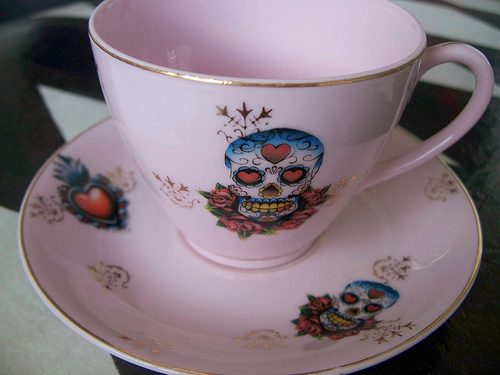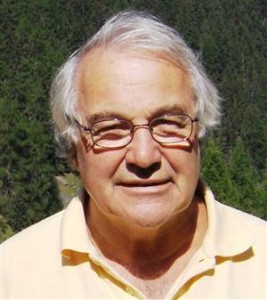Today we talk with Jon Underwood, the founder of Death Cafe. Based on the sociology studies of the Swiss Bernard Crettaz, the goal of Death Cafe is to create a safe environment where people can engage in conversation about death and dying. What first started in Jon’s basement has grown to encompass several locations in several countries. This is Part I of our interview.
Katie: What is a Death Cafe?
Jon: At Death Cafes, people come together in a relaxed and safe setting to discuss death, drink tea and eat delicious cake. The objective of Death Cafes is “to increase awareness of death [while] helping people make the most of their lives.” Jon Underwood founded Death Cafe in 2011 based on the work of Swiss sociologist Bernard Crettaz who offered ‘Cafe Mortels’ in Switzerland and France. Jon read of this in a newspaper article in November 2010. Jon immediately knew that Bernard’s vision clicked with his.
Death Cafe is part of a set of projects about death and dying called Impermanence.The first Death Cafe took place in Jon’s basement and was facilitated by Sue Barsky Reid, who developed a model for running Death Cafes. This involves creating a safe, convivial setting where discussions are led by the group.
We have subsequently held Death Cafes in the Royal Festival Hall, a yurt, cool cafes and other people’s houses. We will shortly be holding our 100th Death Cafe. Around 1,000 people have so far attended a Death Cafe across England, Wales, the U.S., Canada, Australia and Italy. The events have invariably been very special and feedback has been fantastic.
“We have subsequently held Death Cafes in the Royal Festival Hall, a yurt, cool cafes and other people’s houses. We will shortly be holding our 100th Death Cafe.”
Death Cafe are also a ‘social franchise’. This means anyone can host one if they sign up [in accordance with] our principles:
– As a not for profit basis (though to be sustainable we try to cover expenses through donations and fundraising)
– No intention of leading participants towards any particular conclusion, product or course of action
– To be an accessible, respectful and confidential space, free of discrimination
– All alongside refreshing drinks and nourishing food – and cake!
In February 2012, we produced a guide to running your own Death Cafe, which is available here. This has prompted other people to start their own Death Cafes, the first of whom was Lizzy Miles in Columbus, Ohio. We’re in the process of moving over to our new website. This will be a place to share info about death events, death art and death thinking.
Katie: What is your title? What is your background education and experience?
Jon: In terms of this work it is Founder of Death Café. I do a range of other work around death and dying through an organization called Impermanence that I also founded.
Katie: Do you find there is a predominant approach to the conversations that take place?
Jon: The main thing with the conversation is that it should be group directed as much as possible. We generally don’t give people too much information and focus on what they bring to the Death Café. Of course giving information around death is very important, but I believe people have a lot of thought, feelings and experiences already that could do with more airtime.
Katie: Are there any taboo topics?
Jon: Any [conversation] completely irrelevant to death is taboo, though I don’t think that has ever really happened! Also, trying to persuade someone else to adopt your approach/religious views/metaphysics is completely inappropriate.

Death Cafes provide food for thought on dying (both literally and figuratively). Image courtesy of food52.com
We are not a bereavement resource. Death Cafes are aimed at the wider community rather than those experiencing the white heat of bereavement and terminal illness. People in those situations might well benefit more from something more structured.
Katie: How many Death Cafes are there and in how many countries?
Jon: 120 in the UK, US, Canada, Australia and Italy. New Zealand is scheduled for next month.
Katie: Who generally attends a Death Cafe (male, female, age, etc.)?
Jon: The one thing that is consistent is that there are more women than men, both attending and facilitating Death Cafes. The growth of Death Cafes has been primarily driven by women.
Related Articles:
- Tea, cake and mortality? ‘Death cafes’ popping up in Canadian cities (ctvnews.ca)
- Lupa Goes to the Death Cafe (therioshamanism.com)
- ‘Death cafes’ normalize a difficult, not morbid, topic (religionnews.com)

 What are Death Cafes? An Interview with Jon Underwood, Part I
What are Death Cafes? An Interview with Jon Underwood, Part I




 Recovering Cremation Remains After the Los Angeles Fires
Recovering Cremation Remains After the Los Angeles Fires
 “As Tears Go By” by Marianne Faithfull
“As Tears Go By” by Marianne Faithfull
 “The Sea” by John Banville
“The Sea” by John Banville














